Mar
30
2012
or Not What It Says On The Tin
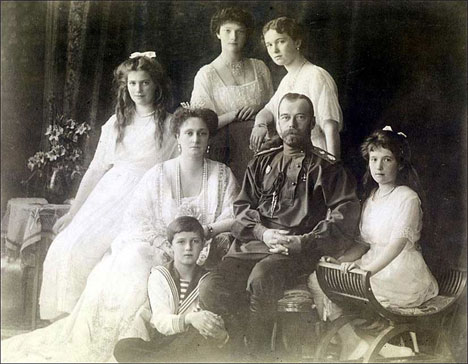 “We are not baptized because of who we are but because of Whom we have believed.”
“We are not baptized because of who we are but because of Whom we have believed.”
“He who loves father or mother more than Me is not worthy of Me; and he who loves son or daughter more than Me is not worthy of Me. And he who does not take his cross and follow after Me is not worthy of Me. He who has found his life will lose it, and he who has lost his life for My sake will find it.” (Matthew 10:37-39)
Time for yet another baptism rant. I thought I’d said everything I needed to say, but a recent post by Dr Leithart, whose words are usually music to my ears, was like being captive at a karaoke contest.
Continue reading
13 comments | tags: Baptism, Communion, Federal Vision, Peter Leithart | posted in Biblical Theology, Quotes
Mar
29
2012
or The Holy Hymen 101
 Blood on the doorpost of the al-Qiddissin Coptic Church in Alexandria, Egypt.
Blood on the doorpost of the al-Qiddissin Coptic Church in Alexandria, Egypt.
“This, like many things in the Torah, sounds pretty barbaric. But, like many of the weirdest things in the Torah, we see these laws, which are personal types, played out in corporate antitypes right to the end of the Bible.”
“But if the thing is true, and evidences of virginity are not found for the young woman, then they shall bring out the young woman to the door of her father’s house, and the men of her city shall stone her to death with stones, because she has done a disgraceful thing in Israel, to play the harlot in her father’s house. So you shall put away the evil from among you.” (Deuteronomy 22:20-21)
In a recent debate about Greg Bahsen’s woeful review of Chilton’s The Days of Vengeance, an online friend took interpretive maximalism to task.
For instance, because doorposts could be likened to legs, Jordan claims that the passover blood smeared on doorposts corresponds to the blood of circumcision—which in turn is equivalent to the tokens of virginity from the wedding night (I am not kidding; cf. The Law of the Covenant, pp. 82-83, 252-258). [PDF]
Yes, this sounds weird, but it isn’t at all. Bahnsen didn’t have an imagination fully informed by the Bible.
Continue reading
Comments Off | tags: David Chilton, Egypt, Greg Bahnsen, Hermeneutics, Martyrdom, Paul, Revelation, Systematic typology, Totus Christus | posted in Biblical Theology, Quotes, The Last Days
Mar
28
2012
 “When Jesus stood at the door and knocked, He was the Covenant sheriff knocking on the Covenant door through His Covenant prophets to serve Covenant papers on the Covenant-breakers.”
“When Jesus stood at the door and knocked, He was the Covenant sheriff knocking on the Covenant door through His Covenant prophets to serve Covenant papers on the Covenant-breakers.”
A friend’s colleague recently posted a summary of wrong ways that evangelicals read the Bible, based on a chapter in Graeme Goldsworthy’s book, Gospel-Centred Hermeneutics. [1]
Boiled down even further, the main errors are:
- The “me-centred” approach: Context is meaningless. Texts speak directly to me.
- Literalism: Fulfilment in Jesus is ignored.
- Legalism: We rail about keeping the Sabbath but eat prawns.
- Subjectivisim: My reading of a passage is right because I felt a peace from God.
- Pluralism: The Bible has many possible interpretations.
- Pragmatism: There are more people at church, so what we are doing must be right, regardless of what the Bible says.
This is a good list, but simply dividing the Bible into pre-gospel and gospel leads to a misinterpretation of much biblical prophecy. Mr Goldsworthy’s blanket-style “everything is fulfilled in Jesus” hermeneutic means he himself ends up with a “me-centred” approach to the Bible.
Continue reading
Comments Off | tags: Covenant curse, Covenant Theology, Evangelicalism, Graeme Goldsworthy, Hermeneutics, James Jordan, Revelation | posted in Biblical Theology, Quotes, The Last Days, The Restoration Era
Mar
23
2012
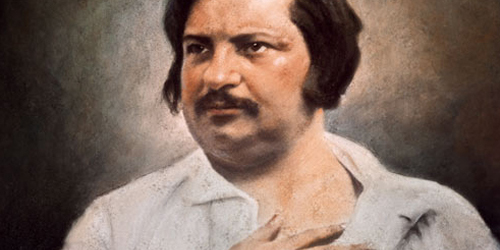
“This coffee falls into your stomach… sparks shoot all the way up to the brain. From that moment on, everything becomes agitated. Ideas quick-march into motion like battalions of a grand army to its legendary fighting ground, and the battle rages. Memories charge in, bright flags on high; the cavalry of metaphor deploys with a magnificent gallop; the artillery of logic rushes up with clattering wagons and cartridges; on imagination’s orders, sharpshooters sight and fire; forms and shapes and characters rear up; the paper is spread with ink—for the nightly labor begins and ends with torrents of this black water, as a battle opens and concludes with black powder.”
— Honore de Balzac
Comments Off | tags: Writing | posted in Quotes
Mar
22
2012
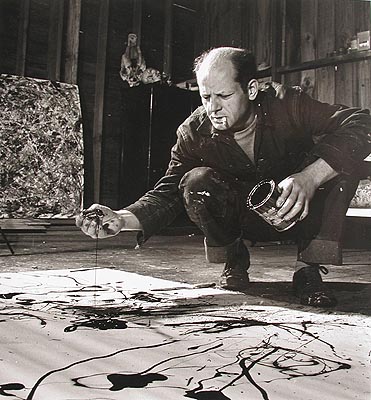 Some excerpts from David P. Goldman’s essay, “Admit It, You Really Hate Modern Art,” in It’s Not the End of the World, It’s Just the End of You: The Great Extinction of the Nations.
Some excerpts from David P. Goldman’s essay, “Admit It, You Really Hate Modern Art,” in It’s Not the End of the World, It’s Just the End of You: The Great Extinction of the Nations.
Why is it that the audience for modern art is quite happy to take in the ideological message of modernism while strolling through an art gallery but loath to hear the same message in the concert hall? It is rather like communism, which once was fashionable among Western intellectuals. They were happy to admire communism from a distance, but very few chose to live under communism.
Continue reading
2 comments | tags: Culture, David P. Goldman, Music | posted in Creation, Quotes
Mar
21
2012
 Following a masterful and beautiful explanation of Israel’s priestly glory, Alastair Roberts writes:
Following a masterful and beautiful explanation of Israel’s priestly glory, Alastair Roberts writes:
In 1 Corinthians 11:7 we encounter a verse that many might find perplexing.
For a man indeed ought not to cover his head, since he is the image and glory of God; but woman is the glory of man.
I believe that careful attention to the logic of this verse is absolutely crucial to unlocking the puzzle of the difference between the female helper apostle, and the male helper apostle.
Continue reading
Comments Off | tags: Alastair Roberts, Corinthians, Ecclesiology, Genesis, N. T. Wright | posted in Biblical Theology, Creation, Quotes
Mar
15
2012

Andrew Hong summarizes some ancient Confucian rites and their meanings, and then writes:
We don’t have many rituals in our modern world – but if you take that one simple ritual, and multiply that into every sphere of life, and every relationship, then you are coming close to the kind of society that Confucius sought to create through the rites. The rites become the means for society to go from inhumane behaviour (in the form of warfare during the Warring States period) to humane and dignified behaviour.
The rites were also the way for society to go from disordered relationships (in the form of rebellion) to ordered and reverential relationships… You may recall that there were five key relationships in the Confucianism: ruler-subject, father-son, husband-wife, older-younger, and friend-friend. These relationships were largely hierarchical in nature, and the rites gave people a way to express and reinforce those relationships.
This is what missiologist Paul Hiebert has to say about the importance of rituals,
“Modern people commonly regard rituals as harmless interludes or discount them as meaningless performances. But rituals play a central role in most societies. They are multilayered transactions in which speech and behaviour are socially prescribed. [...] They give visible expression to the deep cultural norms that order the way people think, feel, and evaluate their worlds. [...] Because rituals dramatise in visual form the deep beliefs, feelings, and values of a society, they are of particular importance in studying worldviews.” Paul Hiebert, Transforming Worldviews, 82-83.
Continue reading
Comments Off | tags: Baptism, China, Communion, Federal Vision, Ritual, Worship | posted in Christian Life, Quotes
Mar
15
2012
Some gents have been posting their favourite Jim Jordan quotes. Some are interesting. Some are funny. This one is tragic.
Continue reading
Comments Off | tags: Bible Chronology, Compromise, James Jordan | posted in Creation, Quotes
Mar
14
2012
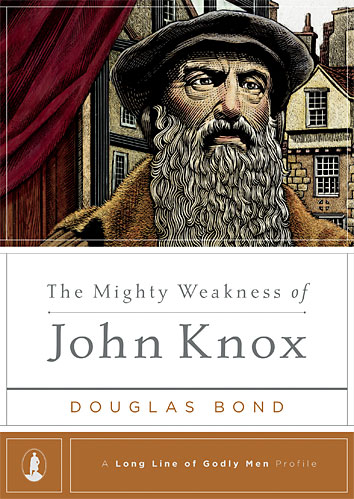 From the recent book by Douglas Bond, pp. 51-53.
From the recent book by Douglas Bond, pp. 51-53.
Knox reluctantly began his preaching ministry when he was pressed int service as a chaplain during the siege of the Castle of St. Andrews. By popular demand, the private tutorials he prepared for his “bairns” developed into public exhortations from the Word of God. As we have seen, he was, in his flesh, a timid, fearing man; “I quake, I fear, I tremble,” he said. But when he opened his mouth to preach, all timidity vanished.
Continue reading
Comments Off | tags: Church History, John Knox, Preaching, Reformers | posted in Christian Life, Quotes
Mar
10
2012
or The Federal Vision Isn’t Big Enough
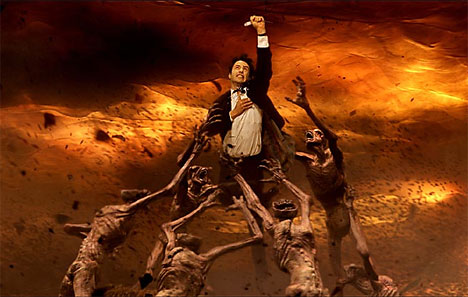
But Jesus knew their thoughts, and said to them: “Every kingdom divided against itself is brought to desolation, and every city or house divided against itself will not stand. If Satan casts out Satan, he is divided against himself. How then will his kingdom stand?” (Matthew 12:25)
ACT I – An End to Sacrifice
“In AD70, the ‘office’ of Jew was finished forever (there are no more Jews in God’s eyes) and the “office” of Gentile was also finished. The middle wall was broken down. Any distinctions now are merely human distinctions.”
Continue reading
4 comments | tags: Baptism, Church History, Constantine, David P. Goldman, James Jordan, Lamech, Noah, oikoumene, Peter Leithart, Politics, Postmillennialism, Revelation, Rom | posted in Biblical Theology, Quotes, The Last Days, The Restoration Era
 “We are not baptized because of who we are but because of Whom we have believed.”
“We are not baptized because of who we are but because of Whom we have believed.”
































